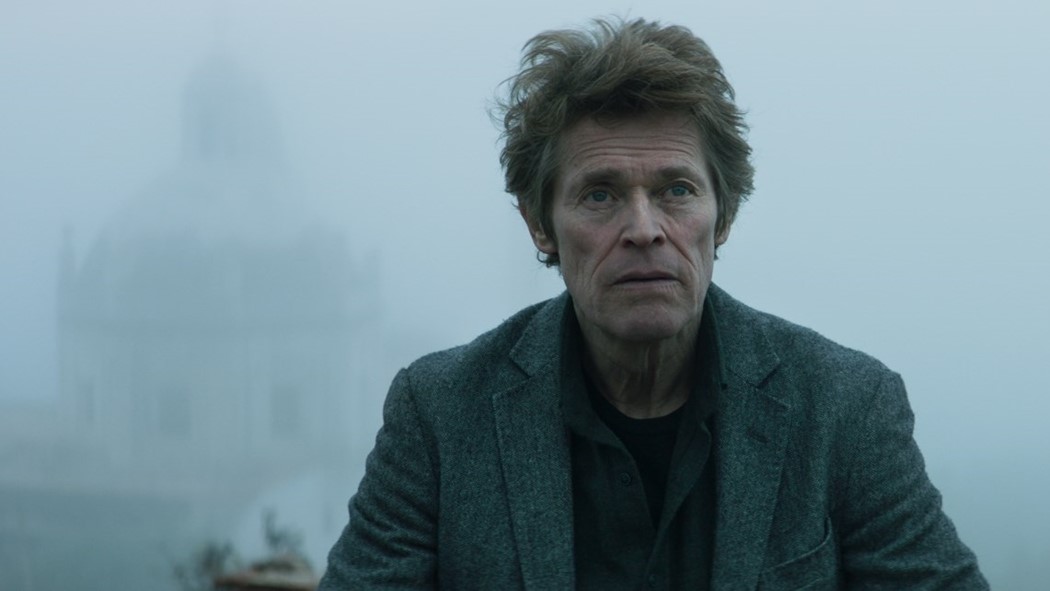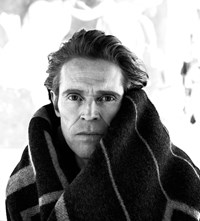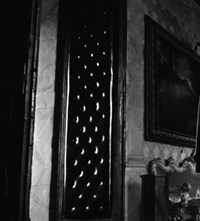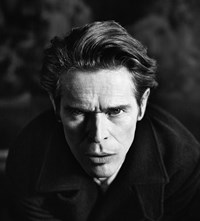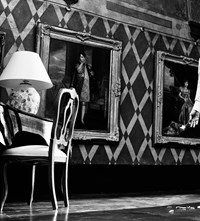Willem Dafoe on His Latest Film Opus Zero and the Freedom of Ageing
- TextDaisy Woodward
Ahead of the release of his latest film, the existential drama Opus Zero, the acting veteran talks working with a first-time director and the liberation of growing older
Willem Dafoe has never been an actor to shy away from new challenges. Over the course of his almost-four-decade career, he has taken on over 100 roles, embodying the good, the bad and the ugly – from Jesus in Martin Scorcese’s The Last Temptation of Christ, to the Green Goblin in Sam Raimi’s Spider-Man, to terrifyingly toothed predator Bobby Peru in David Lynch’s Wild at Heart. His latest release, Opus Zero, meanwhile, sees Dafoe team up with first-time director Daniel Graham for a strange, slow-burning drama about an American composer on a visit to Mexico to sort out the affairs of his recently deceased father.
“I met Daniel through (the Mexican filmmaker) Carlos Reygadas, who I’m a great admirer of,” Dafoe tells Another Man over the phone from his home in Italy. “Daniel had worked with Carlos on one of his films and Carlos thought I’d find him interesting. He sent me some of Daniel’s short films, which were nice but I couldn’t tell much from, and said that he’d like to send me a script. I liked the script, so we started talking.”
Dafoe’s approach to character building is very much an intuitive one. In a recent interview with The Guardian he divulged, “I like working from a place of zero and going towards something. Some people really respond to the idea of nailing it or executing it to perfection… but I’m much better trying to find something than I am knowing something and executing and explaining it.” This goes a long way to explaining the appeal of Graham’s debut feature – a deeply philosophical musing on the very nature of nothingness, touching upon concepts such as how without zero “the notion of quantity would not exist”; how greatly invisible elements, such as the weather, can affect us even though we can’t see them; how, even after someone dies, they continue to exist through the work they leave behind.
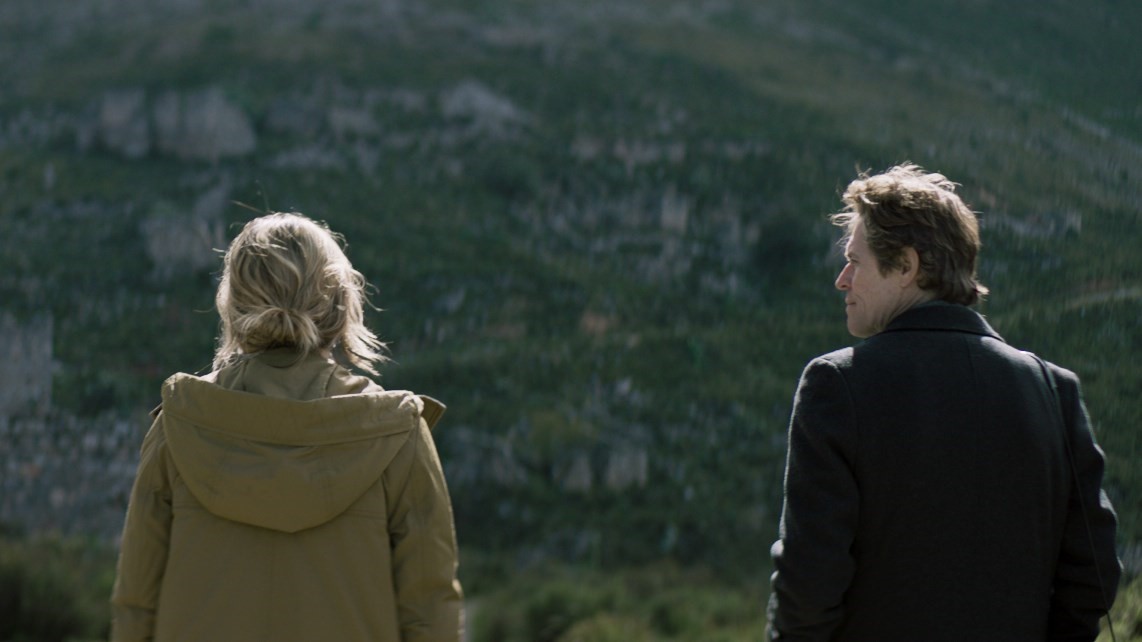
Aptly, much of Dafoe’s preparation for Opus Zero is, in itself, an invisible element of the film. “After I read the script, Daniel started sending me lots of material about this idea of a composer that completes an unfinished work – just like Paul, whose life’s work has been to complete the unfinished symphony of an early 20th-century composer,” he explains. “It was a backstory and gave me information about who the guy was that I was going to play but none of it gets exhibited or expressed directly – in a way that you can see – in the movie. It was good preparation though, and a great introduction to Daniel, who is very passionate and knowledgeable about music and film. It was sort of unconventional and turned me onto the project.”
“The other actors didn’t really speak English and I don’t really speak Spanish so I had to learn by music, by sound, the cues” – Willem Dafoe
That the shoot took place in Mexico was a fortuitous, last minute financing decision, Dafoe explains – it had originally been set in the south of France. “I adore Mexico and it felt much more fertile for the story,” he says. “Real de Catorce, where it’s set, feels quite out of time. It’s a very beautiful place that was once a silver mining town of about 60,000 people – very remote. When the silver dried up, everybody left, leaving it in a state of suspended animation. It’s next to the sacred mountain of the Huichol Indians, where peyote is a sacrament, so it has attracted lots of European and American hippies over the years, thanks to Carlos Castaneda. But the Huichol Indians are still very present there, as well as the local Mexican traditions, so it’s a very magical place.”
Indeed, Real de Catorce’s misty mountains, delicately frescoed church, precipitous mine and cobbled streets provide the perfect environment for Graham’s story, which sees Dafoe’s character traverse the town, increasingly determined to identify a mysterious woman whose photograph he discovered in his father’s apartment and who seemingly vanished from Real de Catorce some 30 years earlier. He is aided in his quest, rather amusingly, by his father’s prototype for a real-time translator, which he uses to chat with local priests, pig farmers and friends of his father. This, Dafoe says, was an interesting feat to pull off. “The other actors didn’t really speak English and I don’t really speak Spanish so I had to learn by music, by sound, the cues. Once you get familiar with the dialogue, you start to perform and communicate on a different level – you have some sense of when and what people are expressing and when you can respond. It’s a very odd way to perform but I didn’t mind it – it kind of opened up new possibilities.”
In the second half of the feature, three filmmakers arrive in the town to collect footage of village life for their documentary, a self-proclaimed “story of opposites”, and again location plays a key role – both visually and metaphysically. First, when the crew witnesses a spine-tingling miracle on Real de Catorce’s foggy plains and later when they opt to shoot an interview with Paul in the dramatic setting of the town’s abandoned amphitheatre. The result is Opus Zero’s most climactic moment – an intellectual joust between the enlightened older artist and the documentary’s idealistic young director. “Some of that text is very good,” muses Dafoe on the scene. “What’s interesting is that Paul is being very evasive, giving very obtuse answers, and when I was a younger man I would have had no feeling for that. That would have seemed like intellectual game play or a snotty, uncooperative attitude,” he chuckles. “But as I get older I can see both the fun and the sadder side of a conversation like that. He’s almost presenting the guy with koans, little riddles.”
“They say, ‘The looser the skin, the tighter the attitude,’ but I’m not sure that’s the case with me” – Willem Dafoe
In an instance of life imitating art, Dafoe offered up his own pearls of wisdom to Graham during the making of Opus Zero. “Without doubt, the participation of Willem was the single most important factor in its realisation,” Graham writes in his director’s statement. “He told me one day that if you pull a woollen jumper apart too vigorously to see how it’s made, you’ll eventually end up with nothing but threads of wool. Mystery, storytelling and art is a difficult balance, he seemed to be saying.” When questioned on this, Dafoe lets out a warm, gruff laugh. “Daniel had been living with this material for a long time so he was very certain, at times almost too certain, of what he needed. He used to work in promotion, making extras for DVDs of very interesting directors, so he had an articulation before the practical experience, but that was OK. It made him reach in a way that sometimes people who haven’t made a lot of movies don’t reach because they’re afraid.”
For Dafoe himself, who has just turned 64 and shows no signs of slowing down – he has a starring role in Robert Eggers’ Oscar-tipped horror The Lighthouse and just finished filming Wes Anderson’s forthcoming feature The French Dispatch – ageing has been a liberating experience. “You get this kind of peace,” he says, reflecting on his willingness to take on more abstract roles. “You don’t sweat so much about your choices or your movements because you know, somewhere, that if you trust your intuition, things will work out. That’s harder to do when you’re younger because you feel like you have more responsibility to find your point of view. As you get older, you let a point of view kind of creep up on you. They say, ‘The looser the skin, the tighter the attitude,’ but I’m not sure that’s the case with me. I’ve got plenty of loose skin but as I get older, my attitude gets much more fluid and easy. It doesn’t mean less passionate, it just means I’m happy not to protect an idea of who I am. I’m really deeply interested in being transformed, much more than I was when I was young.”
Opus Zero is in cinemas nationwide from August 9, 2019.
